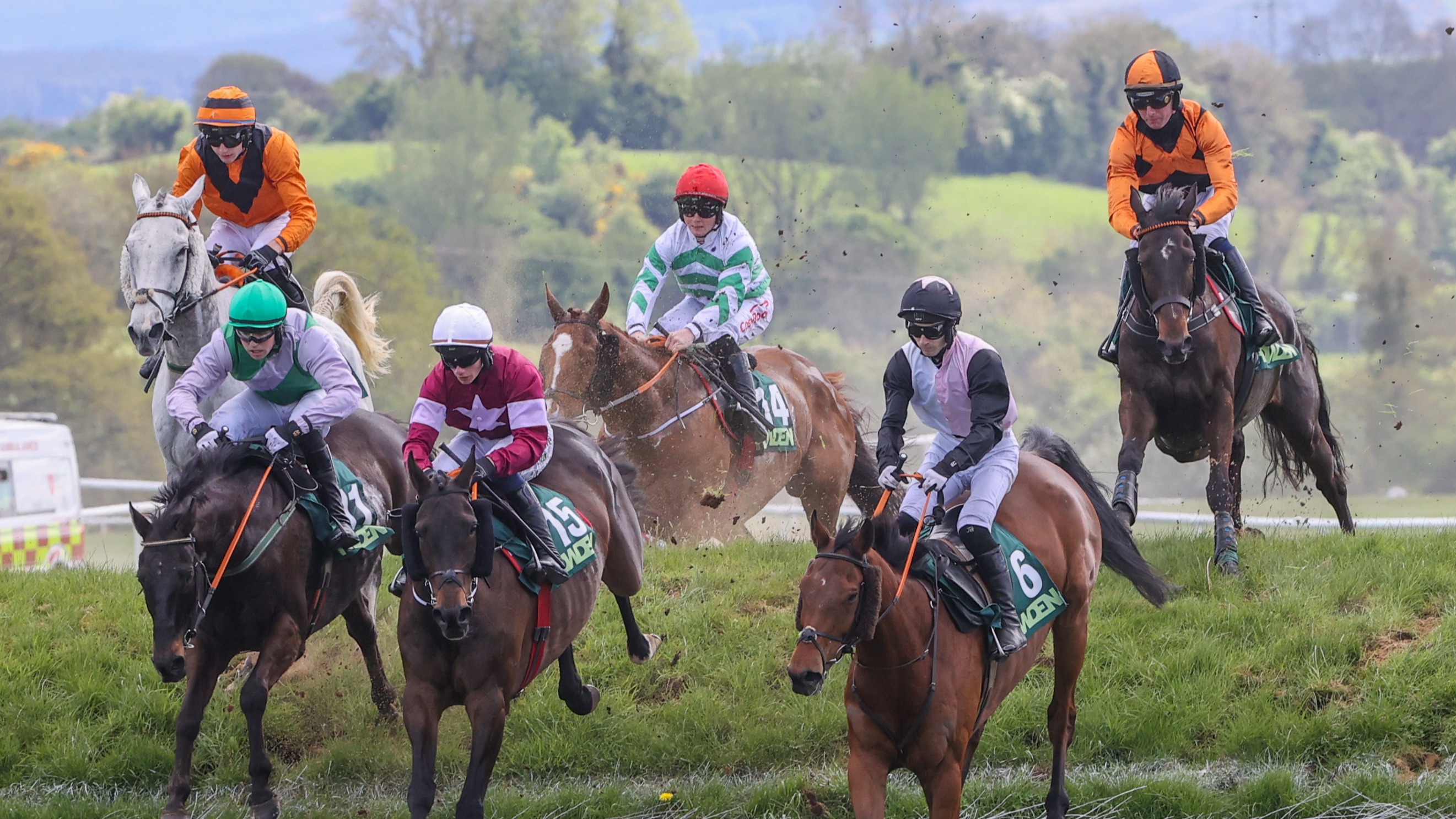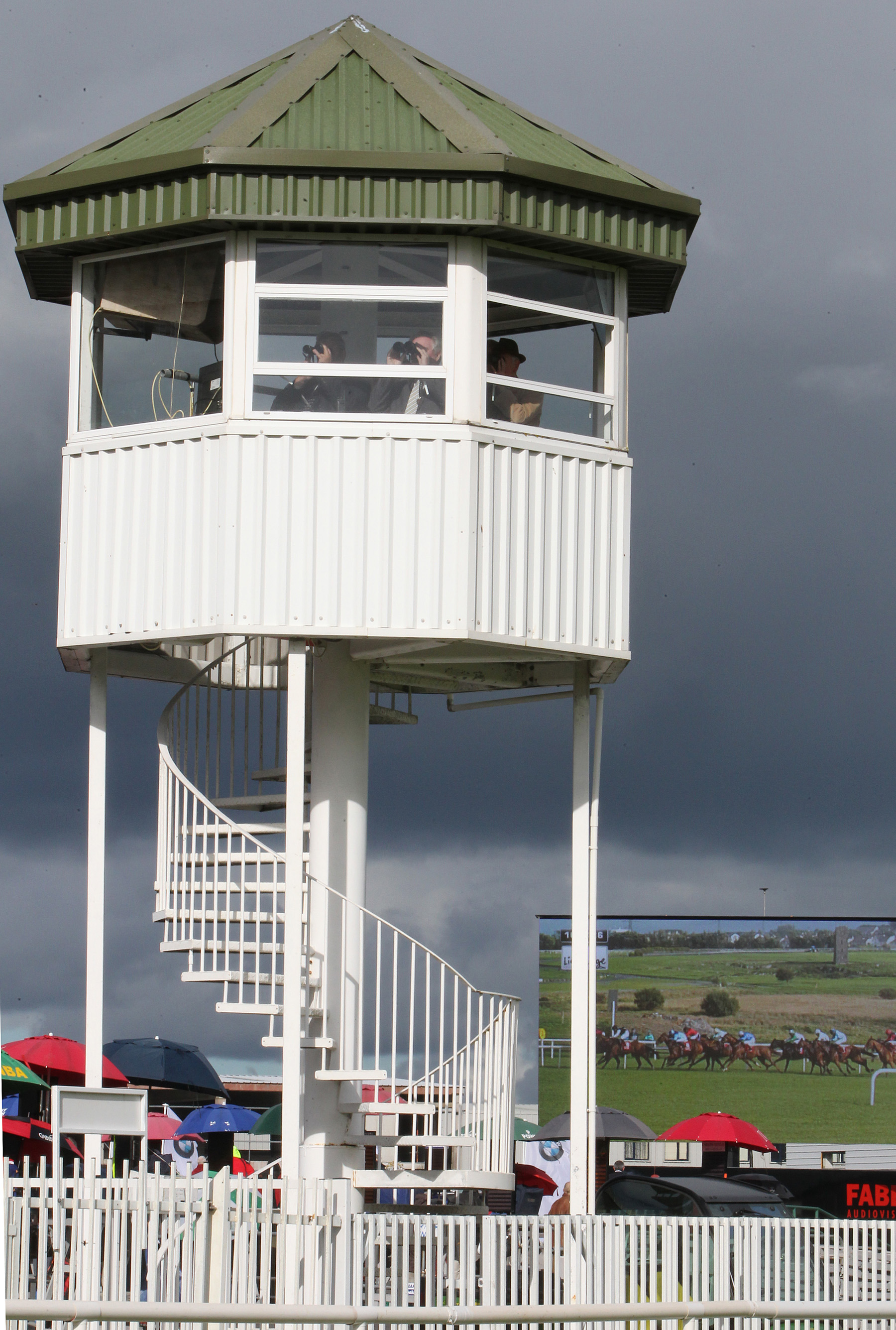
Our Role on Raceday
IHRB Raceday Roles
The Clerk of the Course
The Clerk of the Course is a key component of the team of race day officials employed by the IHRB to provide professional integrity services at each individual racecourse on the day
of every race meeting. The Clerk of the Course works in conjunction with all other race day officials.
The Clerk of the Course is responsible for:
- the general arrangements for a race meeting:
- Ensuring that the course(s) to be used at a race meeting are properly measured and marked.
- Ensuring that any hurdle or fence on the course is compliant with the current Rules and Regulations.
- Ensuring in conjunction with the Starter that a race is never started from the wrong place.
- Ensuring in conjuction with the Starter that a race is never started before the advertised starting time.
- Being the person having the ultimate responsibility for deciding on the bypassing of a hurdle or fence.
- Stopping a race in the interest of safety.
Stipendiary Stewards
Stipendiary Stewards advise the Raceday Stewards, where appropriate, on the interpretation of the Rules of Racing and the INHS Rules as far as they relate to the conduct of a race meeting.
The Stipendiary Steward is responsible for:
- Officiating at a race meeting
- Observing races and advising the Raceday Stewards on potential breaches and how to deal with them.
- Presentation of cases before the Raceday Stewards and Disciplinary Hearings.
- Preparing and publication of rulings and decisions of the Raceday Stewards
- Advising the Raceday Stewards on the interpretation of the Rules and Regulations.
- Advising the Raceday Stewards on the specific guidelines when making their decision.
Clerk of the Scales
The Clerk of the Scales is responsible for weighing out and weighing in the riders for each race thereby ensuring horses carry the weight allocated to them in the race. They are also responsible for ensuring that the rider wears the correct colours and for reporting any overweight carried by the rider.
Starter
The Starter starts the race with the objective of ensuring all horses achieve a fair start. Flat races are normally started from stalls and jump races by tape. The starter is in full control of what happens at the start and has the power to withdraw unruly horses or horses that refuse to load into the starting stalls.
Judge
The Judge is responsible for placing the first six horses (or if prizemoney is advertised beyond sixth place the number of extended placed horses) participating in the race which have passed the winning post, the order in which they have passed and the distance which separated them. The Judge shall base a decision exclusively on the position of the horses’ noses at the time they pass the winning post.
Handicapper
The Handicapper apportions the weights for every handicap. There are four handicappers, two of which are responsible for Flat racing and two for National Hunt racing.
The handicappers are responsible for the publication of weekly ratings based on performances on the racecourse: the higher the rating, the better the horse. The horse’s handicap rating determines its eligibility to run in specific races.
Veterinary Officer
The Veterinary Officer is responsible for supervising the sampling unit and for the clinical examination of horses on the racecourse and for the provision of advice on veterinary matters to the Raceday Stewards. They are also responsible for verifying the identity of horses and checking the vaccinations.
On certain designated racedays, the Veterinary Officer will examine all horses prior to running to ensure that they are fit to run.
Veterinary Assistants
The Veterinary Assistant is responsible for assisting the Veterinary Officer on all matters including the identification of horses, sampling and vaccination checks.
Medical Officer
The Medical Officer is responsible for the medical supervision of all riders and for the provision of advice on medical matters to the Raceday Stewards.
